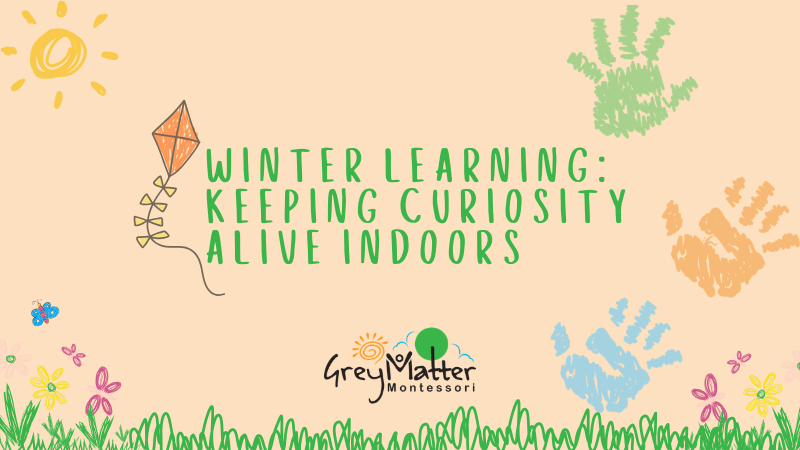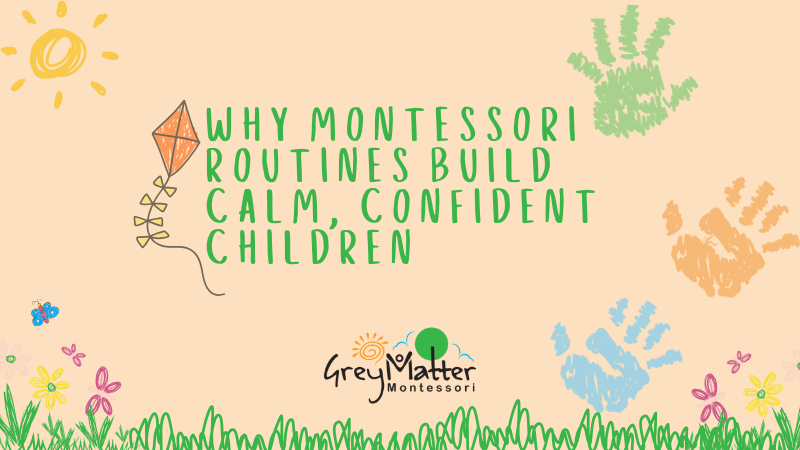The Montessori approach to education has long been revered for its emphasis on fostering independent, self-motivated learners within the classroom. However, the principles that underpin Montessori education can extend beyond the school walls and profoundly impact everyday parenting. In this blog, we'll explore how embracing Montessori principles in your parenting journey can create an enriching environment that nurtures your child's growth, curiosity, and love for learning.
Fostering Independence
Central to Montessori philosophy is the belief in cultivating a child's independence from a young age. Encourage your child to take an active role in their daily routines, such as dressing, meal preparation, and tidying up. Providing opportunities for autonomy not only boosts your child's confidence but also nurtures essential life skills that will serve them well into adulthood.
Promoting Self-Discipline
Montessori education places a strong emphasis on self-discipline and self-regulation. By setting clear boundaries and expectations, you empower your child to make responsible choices. Encourage them to identify their emotions and find constructive ways to manage them. This approach not only fosters emotional intelligence but also equips your child with vital skills for navigating various situations.
Embracing Hands-On Learning
Montessori classrooms are renowned for their hands-on learning materials that engage children's senses and encourage active exploration. Apply this concept at home by providing age-appropriate materials that encourage creativity and problem-solving. Whether it's puzzles, art supplies, or simple science experiments, these activities stimulate curiosity and lay the foundation for a lifelong love of learning.
Creating a Prepared Environment
In the Montessori classroom, the environment is carefully curated to facilitate learning and independence. Apply this principle at home by organizing spaces in a way that enables your child to access materials easily and take responsibility for their surroundings. From having low shelves with accessible toys to designating spaces for specific activities, a prepared environment fosters a sense of order and empowers your child to explore and learn on their terms.
The Montessori philosophy has proven its worth in classrooms worldwide, and its principles hold immense potential for enriching everyday parenting experiences. By fostering independence, promoting self-discipline, embracing hands-on learning, and creating a prepared environment, you create a nurturing atmosphere that encourages your child's growth and holistic development. These principles not only align with Montessori education but also resonate with the core values of effective and empathetic parenting.
As you integrate Montessori principles into your everyday parenting, remember that it's about creating an environment where your child can thrive and learn at their own pace. By embracing these principles, you're not only laying the foundation for a lifelong love of learning but also nurturing a strong sense of self, responsibility, and respect in your child. The Montessori journey extends beyond the classroom – it's a path that empowers both you and your child to create a fulfilling, purposeful, and harmonious life together.
FAQ
Q: How do I create a Montessori-friendly environment at home?
A: To create a Montessori-inspired environment, focus on accessibility and order. Use child-sized furniture and shelves to display materials at eye level. Organize toys and learning materials into specific categories, making it easy for your child to independently choose activities. Incorporate natural materials and limit clutter to create a calm and inviting space.
Q: Can I implement Montessori principles if I have multiple children of different ages?
A: Montessori principles are adaptable for families with multiple children. Create individual spaces for each child with age-appropriate materials. Encourage older siblings to mentor younger ones, fostering a sense of responsibility and collaboration. Multi-age learning can also mimic the Montessori classroom's mixed-age dynamic, allowing children to learn from one another.
Q: How can I incorporate Montessori learning into daily routines?
A: Montessori extends beyond playtime. Incorporate principles into daily routines by involving your child in activities like meal preparation, dressing themselves, and tidying up. Encourage decision-making and autonomy by offering choices, such as selecting clothes or snacks. Embrace teachable moments in everyday tasks to foster learning and independence.






